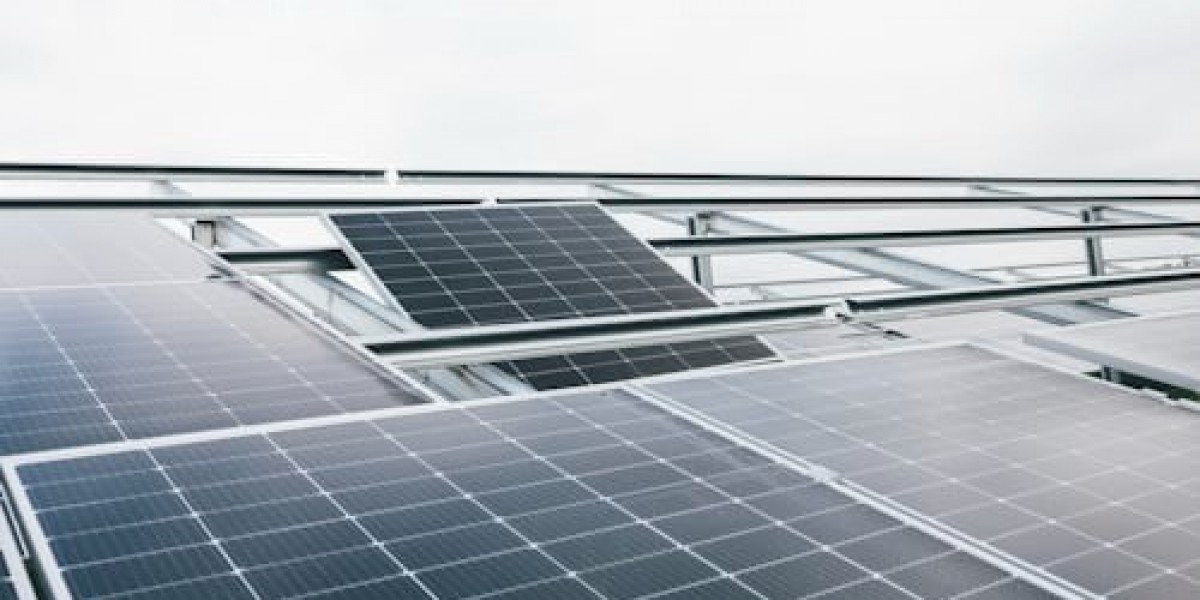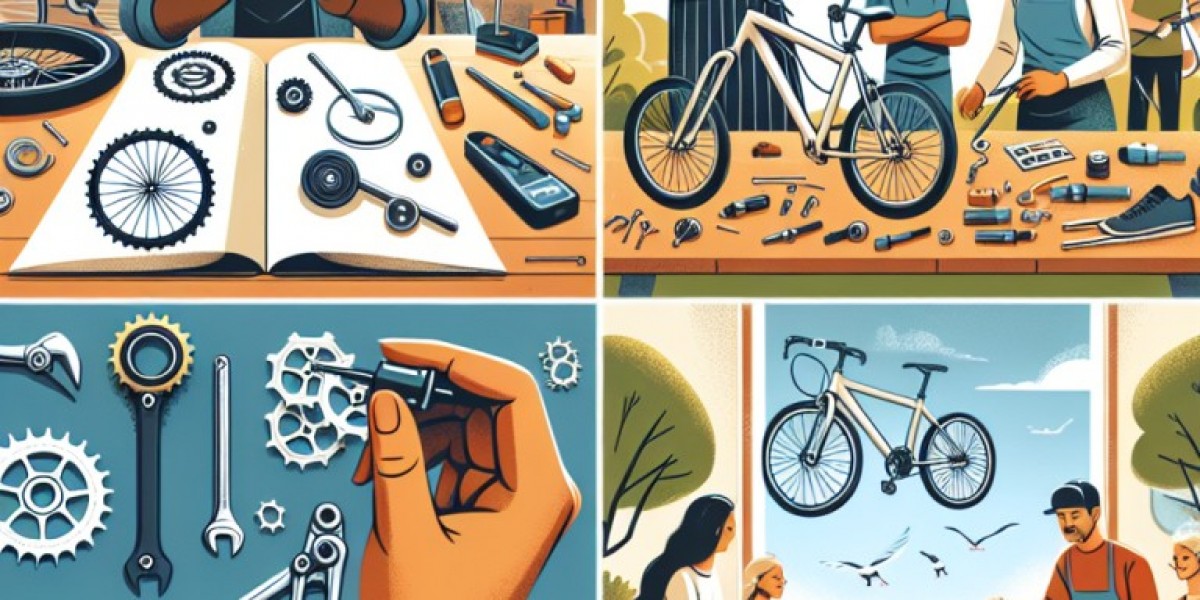Solar power is becoming a reliable and cost-effective source of energy in Pakistan. With the national grid facing frequent power shortages and increasing tariffs, many homeowners and businesses are shifting to solar energy. Choosing the right panel is essential to ensure long-term performance and maximum energy output. Thats why understanding alltypes of solar panels in Pakistan is crucial before making a purchase.
In this article, well explore the available options in the market, their features, efficiency levels, and which type suits different usage needs best.
What Influences Solar Panel Choice in Pakistan?
Before diving into panel types, it's helpful to know what factors affect your selection. Here are some key aspects:
Weather conditions (especially high temperatures and dust)
Roof space availability
Budget limits
Efficiency requirements
Installation costs
Warranty and product lifespan
Different types of solar panels in Pakistan offer different strengths and weaknesses. Lets look at each type in detail.
Monocrystalline Solar Panels: High Efficiency and Durability
What Are Monocrystalline Panels?
Monocrystalline panels are made from a single, pure crystal of silicon. This structure allows electrons to move more freely, making them highly efficient.
Why Theyre Popular in Pakistan
These panels are popular in urban areas of Pakistan where space is limited, and users want the most energy from the smallest possible area.
Pros:
Highest efficiency (up to 22%)
Long lifespan (25+ years)
Perform well in low-light and high-heat environments
Cons:
More expensive than other types
Slight performance drop if partially shaded
Ideal For:
Residential rooftops
Commercial buildings
Urban homes with limited space
Polycrystalline Solar Panels: Cost-Effective and Reliable
What Makes Polycrystalline Panels Different?
These panels are made from multiple silicon fragments melted together. This process is less expensive but also slightly less efficient than monocrystalline panels.
Common Use in Pakistan
Polycrystalline panels are widely used across Pakistan, especially in semi-urban and rural areas where roof space is available, and budget is a concern.
Pros:
More affordable than monocrystalline panels
Decent efficiency (15%17%)
Easy availability in local markets
Cons:
Less efficient in high heat
Slightly lower aesthetic appeal (blue, speckled look)
Ideal For:
Homes in rural areas
Schools and small offices
Budget-conscious users
Thin-Film Solar Panels: Lightweight and Flexible
Overview of Thin-Film Technology
Thin-film panels are made using layers of photovoltaic materials such as cadmium telluride or amorphous silicon. These are lightweight and flexible but less efficient.
Where They Work Best in Pakistan
Due to their flexible design, these panels are used in special cases like portable systems or structures with low weight tolerance.
Pros:
Lightweight and flexible
Perform better in high temperatures
Easy to install on various surfaces
Cons:
Low efficiency (10%13%)
Shorter lifespan
Require more space for same output
Ideal For:
Temporary structures
Off-grid applications
Places with high heat and dust
Bifacial Solar Panels: Double-Sided Power Generation
How Bifacial Panels Work
These panels absorb sunlight from both the front and rear sides. The rear side captures reflected sunlight from surfaces like white concrete or sand.
Adoption in Pakistan
Bifacial panels are gradually becoming popular in large-scale commercial and industrial setups, especially where installation is ground-mounted.
Pros:
Higher total energy output
Long lifespan
Good performance in snowy or reflective areas
Cons:
Higher upfront cost
Requires elevated mounting
Ideal For:
Solar farms
Large ground-mounted projects
Commercial or government setups
Half-Cut Cell Panels: Improved Performance and Durability
What Makes Half-Cut Panels Special?
Half-cut cell panels split solar cells into two halves. This design reduces power loss and enhances performance under shading.
Growing Interest in Pakistan
These are becoming a preferred choice for those seeking modern, high-performing systems, especially in cities.
Pros:
Better shading tolerance
High energy yield
Increased mechanical strength
Cons:
Slightly more expensive
Not widely available in all regions
Ideal For:
Residential rooftops with partial shading
Commercial offices
High-performance solar needs
PERC Solar Panels: Advanced Layer for More Power
What Is PERC Technology?
PERC (Passivated Emitter Rear Cell) is an added layer on standard cells to improve light capture and boost efficiency.
Use in the Pakistani Market
These panels offer better performance in hot climates, making them ideal for most parts of Pakistan.
Pros:
High energy output
Works well in low light
Improved heat resistance
Cons:
Can be more costly than standard panels
Needs careful installation to avoid light-induced degradation
Ideal For:
Homes in hot cities like Karachi or Multan
Educational institutes
Shops or small businesses
Comparing All Types of Solar Panels in Pakistan
Panel Type | Efficiency | Cost | Ideal Use |
Monocrystalline | High | High | Small rooftops, urban areas |
Polycrystalline | Medium | Medium | Rural homes, mid-budget |
Thin-Film | Low | Low | Portable, special surfaces |
Bifacial | High | High | Solar farms, open fields |
Half-Cut Cell | High | Medium | Shaded areas, city homes |
PERC | High | Medium | Hot climates, offices |
Factors to Consider Before Installation
When selecting the types of solar panels in Pakistan, consider the following points to make the best investment:
Sunlight availability: Check how much sunlight your location receives daily.
Roof space: Larger space allows you to install more panels with lower efficiency.
Shading: If your roof has partial shade, go for panels with better shading tolerance.
Budget: Balance your short-term costs with long-term energy savings.
Installer reputation: Work with certified solar panel installers for quality assurance.
Where to Buy Quality Solar Panels in Pakistan
Pakistan has a growing market of solar panel providers. Many trusted companies in Lahore, Islamabad, and Karachi offer installation services and imported panels from countries like China, Canada, and Germany. Make sure to:
Check product warranties
Read customer reviews
Compare system packages
Ask about net metering registration support
You can also explore solar inverters, solar batteries, and off-grid systems while planning your setup.
DSG Energy stands out as a trusted name for delivering advanced solar solutions tailored to Pakistans growing energy needs. With a strong focus on types of solar panels in Pakistan, the company empowers homeowners and businesses to switch to clean, reliable energy through expertly installed grid-tied solar systems. Their commitment lies in promoting smarter energy choices that not only cut down electricity bills but also contribute to a stable and eco-friendly power future. By offering dependable technology and encouraging renewable adoption, DSG Energy plays a key role in shaping a more sustainable energy landscape across the country.
Final Thoughts on Choosing the Right Solar Panel
The wide range of types of solar panels in Pakistan ensures that every homeowner, business, or industry can find a match that fits their energy goals and budget. From premium monocrystalline to flexible thin-film panels, the options are designed for diverse needs and environments.
With the right panel type, you can enjoy uninterrupted power, lower electricity bills, and a greener lifestyle. Make sure to assess your space, budget, and power requirements carefully before making a final decision.







